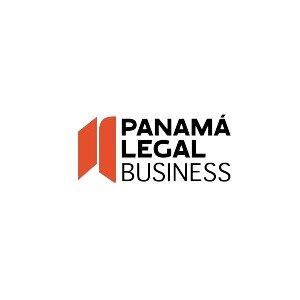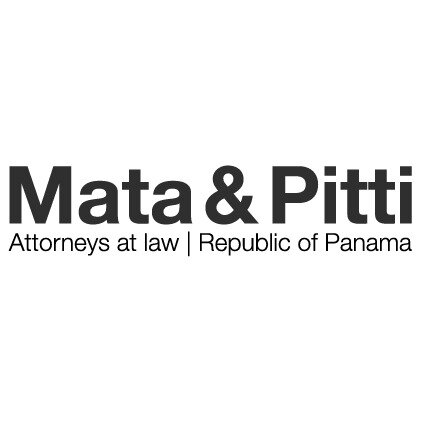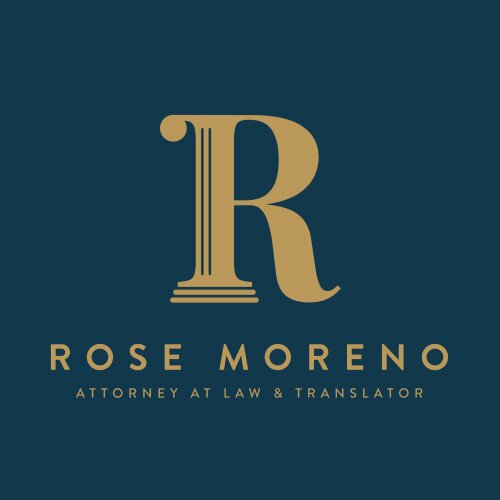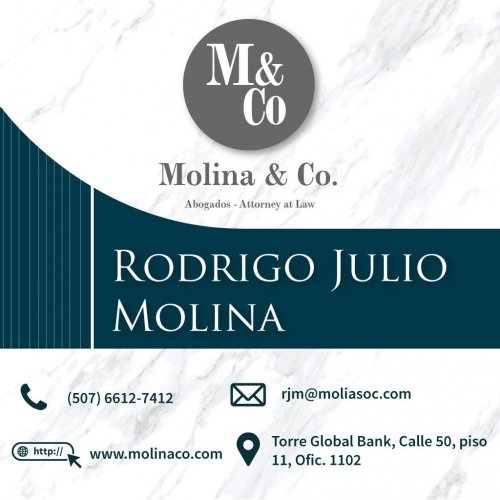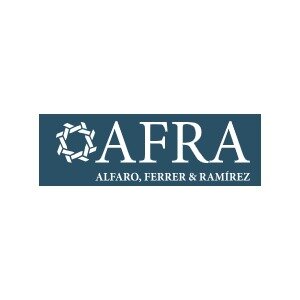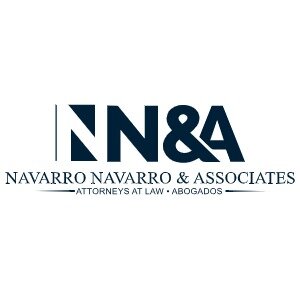Best Art & Cultural Property Law Lawyers in Panama City
Share your needs with us, get contacted by law firms.
Free. Takes 2 min.
List of the best lawyers in Panama City, Panama
About Art & Cultural Property Law in Panama City, Panama
Art & Cultural Property Law in Panama City, Panama, is a specialized field of law that addresses the creation, protection, and transaction of artworks and cultural artifacts. Given Panama's rich historical and cultural heritage, the law focuses on preserving cultural assets, regulating the export and import of cultural property, and ensuring compliance with both national and international legal frameworks. The legal landscape is influenced by Panama's commitment to international agreements such as the UNESCO Convention on the Means of Prohibiting and Preventing the Illicit Import, Export, and Transfer of Ownership of Cultural Property.
Why You May Need a Lawyer
Individuals and institutions may require legal assistance in this field for various reasons. Some common situations include:
- Acquiring or selling artworks or cultural artifacts and ensuring compliance with relevant laws and regulations.
- Resolving disputes over ownership of art and cultural property, especially in cases involving theft or illegal trafficking.
- Navigating legal issues related to the loan or exchange of cultural objects between museums and galleries.
- Seeking advice on the protection of intellectual property rights concerning artworks, including copyright and moral rights.
- Understanding and adhering to the regulatory requirements for exporting or importing cultural artifacts.
Local Laws Overview
Panama has several laws and regulations that pertain to the protection and management of art and cultural property. Key aspects include:
- The Constitution of Panama enshrines the protection and promotion of cultural heritage as a national priority.
- Law No. 14 of 1982 regulates the protection and restitution of cultural property.
- The National Heritage Institute (INAC) oversees the cataloging and safeguarding of heritage sites and objects.
- Exportation of cultural goods is restricted, requiring permits and compliance with strict guidelines.
- International treaties and conventions, such as the UNESCO 1970 Convention, play a significant role in governing the cross-border movement of cultural property.
Frequently Asked Questions
What is considered cultural property in Panama?
Cultural property in Panama includes historical artifacts, artworks, archeological sites, monuments, and any other objects defined under national heritage laws as having cultural significance.
How do I obtain a permit to export cultural property from Panama?
To export cultural property, you must apply for a permit from the National Heritage Institute (INAC), ensuring that the item meets all regulatory requirements and is not considered a protected national treasure.
What should I do if I acquire a piece of art that I suspect might be stolen or illegally obtained?
Contact a lawyer specializing in art and cultural property law and report the item to local and international authorities such as INTERPOL’s Works of Art Unit.
Are there legal protections for artists’ intellectual property rights in Panama?
Yes, artists in Panama are protected under intellectual property laws, which cover rights including copyright and moral rights over their creations.
What role does UNESCO play in Panama’s cultural property laws?
UNESCO conventions influence Panama’s national laws, particularly concerning the protection of cultural property and the prevention of illicit trafficking.
Can cultural artifacts be legally bought and sold in Panama?
Yes, but transactions must comply with national laws governing cultural property, and sellers must ensure that items do not fall under protected categories or require export permits.
What legal actions can be taken if cultural property is damaged or vandalized?
Local laws impose penalties for damage or vandalism of cultural property, and legal actions can be taken including fines and imprisonment, depending on the severity.
How are cultural heritage and property disputes resolved in Panama?
Disputes involving cultural heritage and property are typically resolved through legal proceedings in court, often requiring specialized legal expertise in art law.
Is there a legal requirement to report the discovery of archeological artifacts?
Yes, discoveries of archeological artifacts must be reported to the National Heritage Institute (INAC) to ensure proper cataloging and protection.
Can museums legally exchange or loan cultural objects?
Museums can exchange or loan cultural objects, but these activities must comply with national and international regulations, often requiring specific agreements and permits.
Additional Resources
Here are some resources and organizations that can assist those seeking legal advice:
- National Heritage Institute (INAC): Oversees the protection and management of cultural heritage in Panama.
- Panamanian Association of Intellectual Property (APADEPI): Provides information and services related to intellectual property rights.
- Ministry of Culture of Panama: Offers resources and updates on cultural policies and laws.
- UNESCO Directory: Offers guidance on international agreements relevant to cultural property.
Next Steps
If you require legal assistance in the field of Art & Cultural Property Law, consider taking the following steps:
- Identify the specific nature of your legal need or concern related to cultural property or art.
- Seek out legal professionals or law firms in Panama City that specialize in art and cultural heritage law.
- Gather any relevant documentation or evidence related to your case or legal issue for consultation.
- Consult with a lawyer to understand your legal rights, obligations, and possible courses of action.
- Follow legal advice and ensure compliance with all necessary regulations and legal standards.
Lawzana helps you find the best lawyers and law firms in Panama City through a curated and pre-screened list of qualified legal professionals. Our platform offers rankings and detailed profiles of attorneys and law firms, allowing you to compare based on practice areas, including Art & Cultural Property Law, experience, and client feedback.
Each profile includes a description of the firm's areas of practice, client reviews, team members and partners, year of establishment, spoken languages, office locations, contact information, social media presence, and any published articles or resources. Most firms on our platform speak English and are experienced in both local and international legal matters.
Get a quote from top-rated law firms in Panama City, Panama — quickly, securely, and without unnecessary hassle.
Disclaimer:
The information provided on this page is for general informational purposes only and does not constitute legal advice. While we strive to ensure the accuracy and relevance of the content, legal information may change over time, and interpretations of the law can vary. You should always consult with a qualified legal professional for advice specific to your situation.
We disclaim all liability for actions taken or not taken based on the content of this page. If you believe any information is incorrect or outdated, please contact us, and we will review and update it where appropriate.



